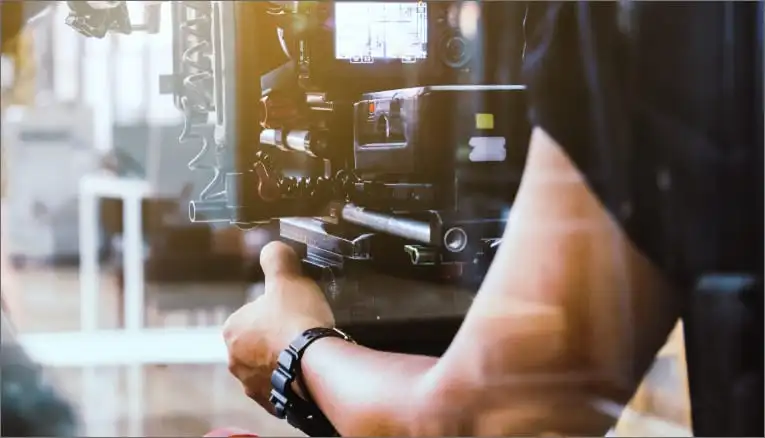In the ever-evolving landscape of journalism, the ability to ask insightful and probing questions is a crucial skill that sets exceptional journalists apart. This guide aims to equip aspiring journalists with the tools and techniques needed to conduct effective and inquisitive inquiries, enabling them to uncover compelling stories and deliver accurate and impactful reporting. Whether you are a seasoned journalist looking to refine your interviewing skills or a budding reporter eager to embark on your journalistic journey, this comprehensive guide will provide you with valuable insights and strategies to excel in the field.
1. The Importance of Inquisitive Inquiry
Inquisitive inquiry forms the backbone of journalism. It allows journalists to dig beneath the surface and uncover the truth, providing readers with a deeper understanding of the world around them. By asking the right questions and pursuing thorough investigations, journalists have the power to hold individuals, institutions, and governments accountable, ultimately shaping public opinion and driving positive change.
2. Research and Preparation
Before conducting an interview or pursuing a story, thorough research and preparation are essential. Familiarize yourself with the subject matter, gather background information, and understand the context in which the story unfolds. This will not only help you ask relevant and informed questions but also demonstrate your professionalism and credibility to your sources.
3. Developing Effective Interviewing Techniques
Effective interviewing is a skill that requires practice and refinement. Start by establishing rapport and building trust with your interviewee. Create a comfortable and non-confrontational environment that encourages open and honest dialogue. Active listening is key – pay attention to verbal and non-verbal cues, and adapt your questions accordingly. Ask open-ended questions that elicit detailed responses, and follow up with probing questions to delve deeper into the subject matter.
4. The Art of Probing Questions
Probing questions are the backbone of inquisitive inquiry. These questions go beyond the surface-level information and encourage interviewees to provide thoughtful and detailed responses. Use techniques such as “why,” “how,” and “can you elaborate on that?” to encourage interviewees to expand on their answers. Be persistent but respectful, allowing the interviewee to feel comfortable while still pushing for valuable insights.
5. Building Trust and Establishing Confidentiality
Journalists often deal with sensitive topics and confidential information. Building trust with your sources is crucial to gaining access to valuable information and ensuring their willingness to share their stories. Assure them of your commitment to accuracy and fairness, and respect their confidentiality when necessary. Maintaining ethical standards and establishing trust are paramount to being a respected and successful journalist.
6. Fact-Checking and Verification
In today’s era of misinformation, fact-checking and verification are more important than ever. Journalists have a responsibility to present accurate and reliable information to their audience. Cross-reference your sources, verify facts, and seek multiple perspectives to ensure the integrity of your reporting. Fact-checking not only protects your credibility but also helps to combat the spread of false information.
7. Adapting to Different Interview Styles
Every interviewee is unique, and as a journalist, you must adapt your interviewing style to suit different individuals and situations. Some interviewees may be more reserved, while others may be more forthcoming. Gauge the interviewee’s personality and adjust your approach accordingly. By being adaptable and flexible, you can foster more productive and insightful conversations.
8. The Power of Follow-Up Questions
The conversation doesn’t end with the initial interview. Follow-up questions are an essential part of the journalistic process, allowing you to clarify information, seek additional details, and address any gaps or inconsistencies. Follow-up questions demonstrate your dedication to accuracy and ensure that your reporting is comprehensive and well-rounded.
9. Ethics and Integrity in Journalism
Ethics and integrity lie at the heart of responsible journalism. Uphold the principles of honesty, fairness, and transparency in your reporting. Respect the privacy of your sources, obtain informed consent when necessary, and avoid conflicts of interest that may compromise your objectivity. By adhering to a strong ethical framework, you can maintain your credibility and the trust of your audience.
10. Continuing Education and Growth
Journalism is a constantly evolving field, and it’s essential to stay updated with the latest trends, technologies, and best practices. Seek out professional development opportunities, attend workshops, conferences, and seminars, and consider enrolling in specialized courses to enhance your skills. Online platforms like Yellowbrick offer valuable journalism courses that can provide you with industry-specific knowledge and expertise.
Conclusion
Inquisitive inquiry is the backbone of modern journalism. By mastering the art of asking insightful questions and conducting thorough investigations, you can become a skilled journalist capable of uncovering compelling stories and delivering impactful reporting. As you embark on your journalistic journey, remember to stay curious, persistent, and ethical. The power to inform, inspire, and effect change lies in your hands.
Key Takeaways:
- Inquisitive inquiry is a crucial skill for journalists, allowing them to uncover the truth and shape public opinion.
- Thorough research and preparation before interviews or stories demonstrate professionalism and credibility.
- Effective interviewing techniques involve building trust, active listening, and asking open-ended and probing questions.
- Building trust with sources and maintaining confidentiality are crucial for accessing valuable information.
- Fact-checking and verification are essential to combat misinformation and maintain credibility.
- Adapting to different interview styles and using follow-up questions enhance the depth and quality of reporting.
- Upholding ethics and integrity is essential for responsible journalism and maintaining audience trust.
- Continuing education and professional development are vital to stay updated with industry trends and best practices.
Consider taking the “NYU | Modern Journalism” online course and certificate program offered by Yellowbrick to further enhance your journalism skills and gain industry-specific knowledge. This program provides valuable insights and guidance from industry professionals, helping you excel in your journalistic pursuits. Embrace the power of inquisitive inquiry and embark on a fulfilling career in journalism, where your dedication to uncovering the truth can make a significant impact.








